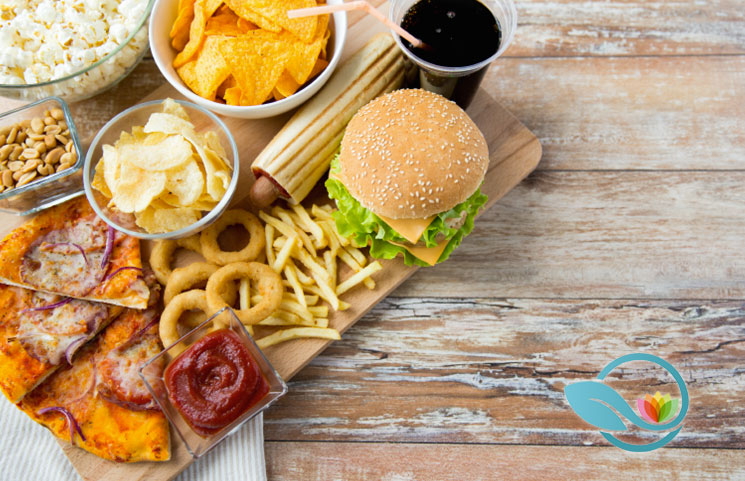Published
7 years agoon

There are some scary statistics out there. According to one study, over 60 percent of the American diet is made up of ultra-processed foods. Processed foods essentially means that the food has been broken down, and combined with oil, sugar, salt, and other additives. The more highly processed food is, the less likely it is to have high nutritional value.
Take an apple, for example. An apple is unprocessed in its natural state, but if it is cut, cooked, and combined with fats and sugars to make an apple pie, then the nutritional value of the apple breaks down and users are left with a processed apple pie. The same applies to bread – homemade bread is processed, but much less so than industrial-made bread – just look at the label on the packaging and it becomes clear how much unnecessary substances are added and how little is left of the original wheat.
The health effects of processed foods appear to be scary as well. One study determined that there may be a link between ultra-processed food intake and obesity. According to the study summary, “[r]ecent research provides fairly consistent support for the association of ultra-processed food intake with obesity and related cardiometabolic outcomes.” However, the study also adds that there “is also a clear need for further studies.”
Other studies were recently conducted assessing the difference between whole foods and ultra-processed foods. The studies, published by the British Medical Journal, reviewed two populations and determined that the first had a lower risk of heart disease and greater longevity where they consumed less processed foods. The second population that consumed ultra-processed foods consumed a greater amount of more calories and gained more weight than those who consumed minimally processed or whole foods.
National Institute of Health researcher Kevin Hall also conducted a study on processed foods. In his study, he fed one population an ultra-processed diet for four weeks, and another population a minimally processed diet for the same amount of time. The ultra-processed foods included store-bought meals, such as canned ravioli, frozen pancakes, and mac and cheese. The less processed foods included grilled chicken, grains, oatmeal, nuts, and bananas. The results showed that those who consumed ultra-processed foods consumed 500 more calories per day.
Hall told the Washington Post, “There are several potential hypotheses. There were about two calories per gram in the processed food,” excluding drinks, “while the unprocessed was closer to one. People also ate the ultra-processed meals a lot faster. “It might be softer, easier to chew and swallow.”
Mehmood Khan, who was the head of research and development at PepsiCo, shared in the Washington Point article as well, “The most important thing we can do as a society is figure out how to make more nutritious food, more nutrient-dense food in a manner that’s convenient, but to make them affordable and accessible.” He added, “When you actually do studies and give people options, they tend to always prefer tastier, and don’t like to compromise taste for health.”










Disclaimer: Please understand that any news, guides or reviews found here are not a worthy substitute for medical advice. It is extremely wise to consult with a licensed healthcare professional or physician before adding any new health product or program to your routine. No supplements or services here are intended to diagnose, cure or prevent any disease.
Disclosure: Links located within this website may be affiliate placements where referral rewards will be generated if you make a purchase. This adds no additional cost to you and does not change the outcome of the research or review, but goes back into site upkeep and team sustainability.

